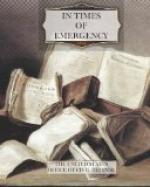* Understand nuclear attack hazards (See Chapter 2, page 9)
On the widespread threat of fallout, remember:
* The most dangerous
period is the first 24 hours after
fallout arrives.
But you might have to use fallout shelter
for up to two weeks.
* Highly dangerous amounts
of fallout are visible. They look
like particles of sand
or salt.
* There is little danger that adults could inhale or swallow enough fallout particles to hurt them. Small children, however, could be injured by drinking contaminated water or milk.
* A person exposed to
fallout radiation does not become
radioactive. Radiation
sickness is not contagious; one
person cannot “catch
it” from another person.
* Know the attack warning signal (See Chapter 3, page 17)
* On outdoor warning
devices, the Attack Warning Signal is
a 3- to 5-minute
wavering sound, or a series of short blasts
on whistles or horns.
* This signal means: An enemy attack against the United States has been detected. Take protective action. (This signal has no other meaning, and will be used for no other purpose.)
* On warning, don’t use the phone. Get information from radio.
* Know the location of fallout shelter (See Chapter 4, page 23)
* Public shelters are marked like this.
* Good shelters can be prepared in homes with basements.
* If no shelter is available, improvise protection (See Chapter 5, page 33)
Remember:
* A basement corner
below ground level, or a storm cellar, is
the best place to improvise
fallout protection.
* For the best possible
protection, use heavy and dense
materials
for shielding.
* Prepare emergency supplies (See Chapter 6, page 39)
Especially important are:
* Water and other liquids.
* Food requiring no cooking.
* Special medicines.
* Conserve emergency supplies; maintain sanitation (See Chapter 7, page 45)
* Reduce fire hazards (See Chapter 8, page 51)
* Know the basics of emergency medical care (See Chapter 9, page 55)
If no doctor is available,
especially important are actions
to:
* Restore breathing.
* Stop serious bleeding.
* Treat for shock.
* Treat broken bones and burns.
* Follow official instructions




